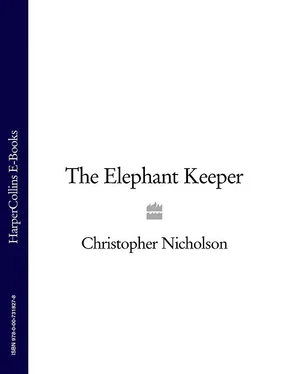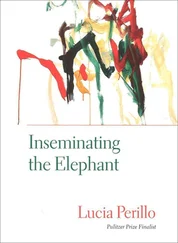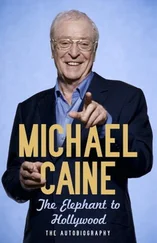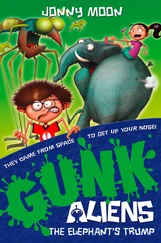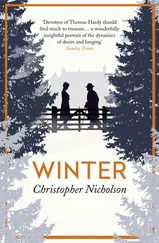I asked the sailor what an Elephant looked like; he replied that it was like nothing on earth.
Joshua and I waited for more than two hours, hoping to get a glimpse of the animals, but as dusk began to fall I judged it best that we return to Mr. Harrington’s house. I reported the sailor’s account to Mr. Harrington, who said that he would be interested to see the creatures. Mrs. Harrington, who was present, said to her husband, ‘John, we do not want to start a menagery.’ This was the first time that I ever heard of a menagery ; it is a French word, which means, a collection of animals. Mr. Harrington replied: ‘I have no intention of doing so, I assure you.’
Early in the morning of the succeeding day, when we again went to the quay, Mr. Harrington accompanied us. With the tide now full, the deck of the Dover lay level with the quay; and we watched as, with many shouts, the great crane swung five sturdy crates on to the side of the quay. This took more than an hour, and, as the minutes passed, another crowd, almost as large as that of the day before, gathered to watch the spectacle unfold.
The Master of the Dover was one Captain Elias Hall, a stout, red-faced man who looked uneasy in a stiff suit. Taking a chisel, he prised two boards from the first crate, which had slipped its harness and landed heavily. It contained the striped horse, a creature known as a Zebra, and I saw at once that it had broken both its front legs and was very near death. Joshua was much distressed by its suffering, and the contents of the next crate to be opened were even more painful to behold, for the Leopard was long past all hope of recovery. This Leopard was evidently the prize trophy of the Captain, who had hoped, no doubt, to sell it for a large sum of money to some gentleman, and he did his best to rouse the poor animal by kicking its body and pulling its tail, to no avail, since it was utterly dead and had, indeed, begun to stink. The third crate, rather smaller, held a ginger-coloured baboon with a neat white beard and sky-blue testicles, just as the sailor had said; shivering as if it were cold, and holding its head in its hands, it crouched in a corner of the crate. Someone called for it to be brought forth, but someone else told us that it was excessively dangerous and would bite at will. Joshua now began to cry, saying that he wanted to go home; however, Mr. Harrington dissuaded him.
The next crate to be opened contained a large grey animal, lying on its side, deep in ordure, its hind legs in shackles. In my ignorance I had no notion even whether it might be of the land or sea, for in truth it did not resemble any creature that I had ever seen or imagined, except perhaps a whale. I heard the word ‘Elephant’, but scarcely registered its meaning in my astonishment. It had two huge ear flaps, four thick legs, and a single snake-like prottuberance dangling from the centre of its face. From a distance it seemed hairless, although on closer inspection I saw thick wiry hairs sprouting at intermittent intervals from the cracks and fissures in its skin, which was the colour of ash. Its eyes were closed. To me it looked nearly as dead as the Leopard, and Captain Hall evidently feared as much, because he ordered two of his sailors to throw sea-water over its body. At the shock of the water, the creature’s eyes remained closed, but it made a small stir with its head, whereupon a party of sailors dragged it out of the crate and, in spite of its great weight, endeavoured to set it on its feet. The Elephant promptly collapsed, being unable to stand, very nearly crushing one of the sailors beneath its weight. I was not surprized that it could not stand for, as I was presently informed, it had been confined in this tight space and virtual darkness for the entire length of the voyage, a matter of some ninety-one days, during the bulk of which it had been fed a meagre diet of biscuits and roots. It was easy to imagine the suffering that the creature must have endured, and the confusion in its mind; that it had survived the journey, was very near incredible.
When the final crate was opened we beheld another Elephant, in an even more desperate condition, a heap of grey skin.
Mr. Harrington and Captain Hall stepped aside and began to talk privately, while I learned more from the sailor. He told me that these two Elephants were mere children, barely half of the size that they might eventually achieve, something that I found privately incredible, but he assured me it was so; that another Elephant, a male, which had also been seized and brought on board ship, had been at least twice their bulk, and equipped with long tusks. When I asked where this prodigious creature now was the sailor told me that one night, at the height of a violent tempest, it had broken its shackles, burst out of its crate and rampaged the length and breadth of the ship, bellowing and trumpeting. There were fears that, with its size and weight, it might charge through the side of the ship, but to re-capture it in such a temper, even in calm weather, would have been a most hazardous operation; during a storm, it was not to be contemplated. However, the Elephant soon slipped and fell groaning on the deck, whereupon it was secured with nets and ropes and shackles. It never stirred again, and refusing all food and water was dead within three days. Captain Hall, who had been hoping to sell it for a large sum, had been sorry at its end, but the crew was generally relieved to be rid of a dangerous animal, and glad of the flesh provided by the carcass. I asked the sailor what Elephant tasted like, and he answered that it was very palatable, similar in flavour to beef, though far tougher in texture. What remained of the carcass was cast overboard, though not before the tusks and teeth were removed and stored in Captain Hall’s cabin.
Shewing my ignorance, I asked him what he meant by ‘tusks’, whereupon he spread his arms and described two great scimitars of white horn, jutting not from the temples, as one would suppose, but from the sockets in the roof of the Elephant’s mouth. The sailor said, it was a matter of regret that Nature had not supplied human beings with such weapons, which would have proved very useful. He also said that whoever bought these young Elephants would regret their purchase, for they would grow up full of rage and irritability, like the angry male.
Remembering Mr. Harrington’s words about travellers’ tales, I thought that this account of giant tusks might contain more invention than truth; however, both the tusks and teeth of the dead male were forthwith brought out of the ship. The teeth were well worn, testament to years of grinding, and reminded me of horses’ teeth, though they were much larger, the two largest being as large as house-bricks, while the tusks were smooth and curved and long, though not quite as long as the sailor had told me. One tusk was somewhat longer than the other, and though the tip of the longer tusk was pointed, that of the shorter of the tusks had been blunted. Also, when he had compared them to scimitars, I had supposed that they had sharp edges, which would slice off a man’s hand like the blade of a sword; whereas they were rounded. In colour, they were more cream than white.
Mr. Harrington now came to me. ‘Tom,’ said he, ‘is it your opinion that these miserable creatures are likely to live?’
I was a good deal flattered to be asked for my opinion, and also very uncertain how to reply. Both Elephants were breathing, but little more could be said in their favour; it seemed unlikely that either would survive for long. However, not wanting to answer entirely in the negative, I confidently suggested that they should be offered fresh water, and that if they drank it would be a sign that they might live. Pails of fresh water were promptly procured, and placed in front of the animals. Since their eyes were closed, they could scarcely be aware of what they were being offered; therefore, having received permission from Captain Hall, I cautiously crouched by the nearer of the Elephants, a female, and splashed a little water into her face. When she did not respond, I lifted her trunk, as I later learnt that it was called, and laid it across the back of my neck. This moment, when I touched an Elephant for the first time, when I felt the dry, wrinkled quality of its skin, when I felt the warmth of its skin, as warm as that of a human being, is one that I find hard to describe, but a great tenderness for the creature ran through me. By slowly straightening, I was able to lift the trunk and draw open the mouth of the Elephant, and into this dark cavern I poured a quantity of water. It vanished into the creature’s throat like a stream vanishing into a hole in the ground. I poured off the entire contents of the pail, and was reaching for another pail when the Elephant’s trunk seemed to slide off my neck, and to curl toward her mouth in search of further refreshment. At this sign of life I rejoiced greatly. After giving her the second pail, I turned my attention to the other Elephant, which I now saw to be a male, for two short tusks were poking from the skin above its mouth. I lifted its trunk, which was much heavier than that of the female, and laid it over my neck; but though I poured three full pails of water down its throat it failed to stir, and seemed past recovery. Mr. Harrington, who had watched all this, now turned to Captain Hall.
Читать дальше
